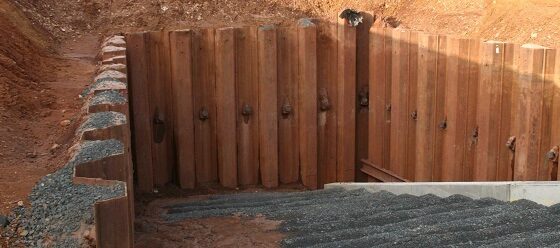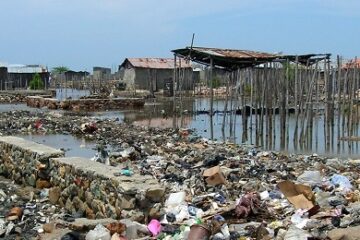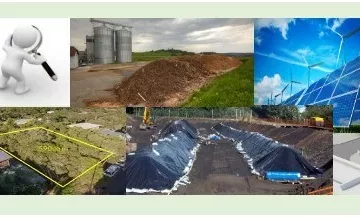Cleaning up contamination is not necessarily the best option to remove the risks posed by it. Removing a problem seems to be a common sense approach in life, however in the contaminated land industry it can be sensible and better for the environment to manage the problem by isolating the contamination.
Impermeable barriers by definition will not allow fluids to travel through them. With this in mind, if you can put an impermeable barrier around contamination then you can prevent it from migrating in all but gaseous form. Thankfully gas issues are typically only a risk to buildings, and gas risks and resultant protection measures for buildings are well understood.
Most vertical migration is controlled by gravity, or at most a membrane or capiliary break layer.
Horizontal migration, i.e. via groundwater, can be controllled using a variety of impermeable barriers including HDPE barriers, sheet piles, and slurry walls to name a few. Each type of construction has it’s own merits, with the practicalities and costs of installation varying depending on shape and size of barrier, combined with the difficulties posed by both physical and chemical ground conditions.
The most impressive impermeable barriers in my opinion involve in-situ soil mixing. Essentially mixing concrete in the ground using soil as the ballast. A range a additives make the barrier impermeable to the required contaminants. This technology causes only minimal site disturbance and produces little or no surplus spoil.
Impermeable barriers can also be used to isolate an uncontaminated area from a known pollution incident e.g. to protect a drinking water source.
Is an impermeable barrier a suitable solution for you?
What type of barrier will work and provide best value for money?
Feel free to get in contact and let us answer those questions for you, we’ll do it in strict confidence and handle the initial enquiry at no charge. Contact us on info@soilutions.co.uk and/or 0800 0209 307.
2021
Soil remediation guide
Approaching soil remediation without any prior knowledge can be difficult and uncomfortable at times, especially when it can potentially be very costly. This free eBook will help you understand the whats, the whys and the hows of soil remediation in the simplest terms.







Leave a Reply